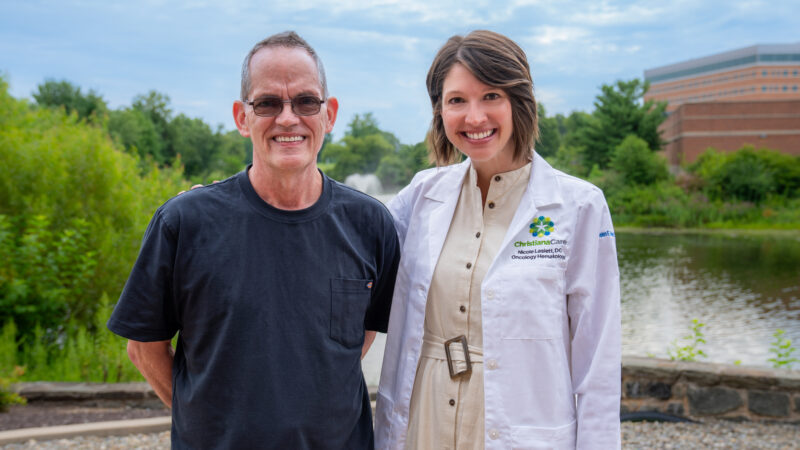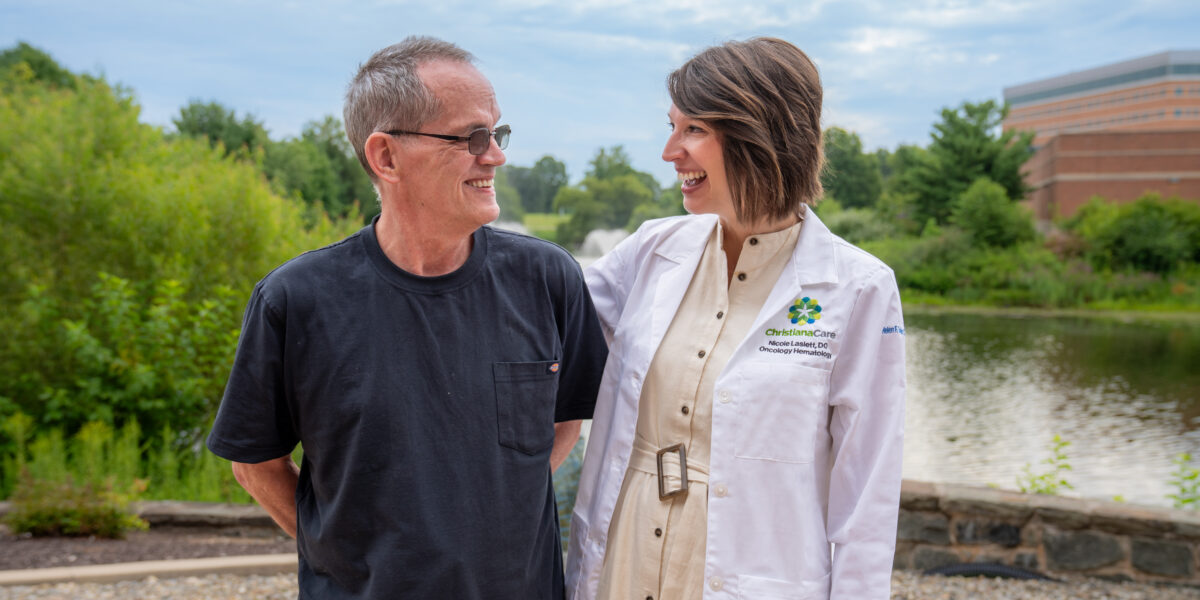John Taylor is a man who fixes things. At 63, he has had a long career in maintenance, using his know-how to help others. But a diagnosis of rectal cancer was something he couldn’t fix.
“My most important job is taking care of my wife, Sharon, who has Parkinson’s disease,” Taylor said. “I couldn’t let long months of exhausting cancer treatments get in the way of my responsibility to her.”

Colorectal cancer specialists at the Helen F. Graham Cancer Center & Research Institute offered Taylor the option to try a transformative new protocol that would shorten his treatment time and get him back sooner to doing what matters most in his life.
Click here to connect with the Helen F. Graham Cancer Center & Research Institute or call 302-623-4500.
Typically, a person diagnosed with early stage locally advanced rectal cancer like Taylor’s would receive radiation combined with chemotherapy before surgery to remove the cancer. More chemotherapy might follow after surgery to keep the cancer from coming back in another part of the body.
Recently published results from a large, government-sponsored clinical trial show that for patients like Taylor, skipping radiation before surgery can be equally effective.
Taylor is the first person in Delaware to follow the new radiation-free protocol.

“Chemotherapy was tough on me so when my doctors told me I didn’t need radiation, I was all for it,” Taylor said.
“At the Graham Cancer Center, decisions about treatment take into account your life and your family — not just your cancer.”
— John Taylor
“I had every confidence in my team and their decision to skip radiation before surgery. They haven’t steered me wrong yet.”
Based on evidence from the trial, his treatment has been shorter and more tolerable, without exposing him to the potential harm that pelvic radiation can cause to skin and bone structures or bowel and sexual function.
“Clinical trials drive many advances that are reshaping the standards of care for rectal cancer,” explained ChristianaCare Medical Oncologist Nicole Laslett, D.O.
“At a comprehensive cancer center like ours we have the skill and multidisciplinary expertise to transform these findings into care that is more effective, more individualized and more convenient for our patients.”
Chemotherapy successfully reduced the size of Taylor’s tumor for surgery.
“At the Graham Cancer Center, decisions about treatment take into account your life and your family — not just your cancer,” Taylor said.
“Thanks to Dr. Laslett and the rest of my team, I am looking forward to getting back to normal and totally being there for my wife again.”



